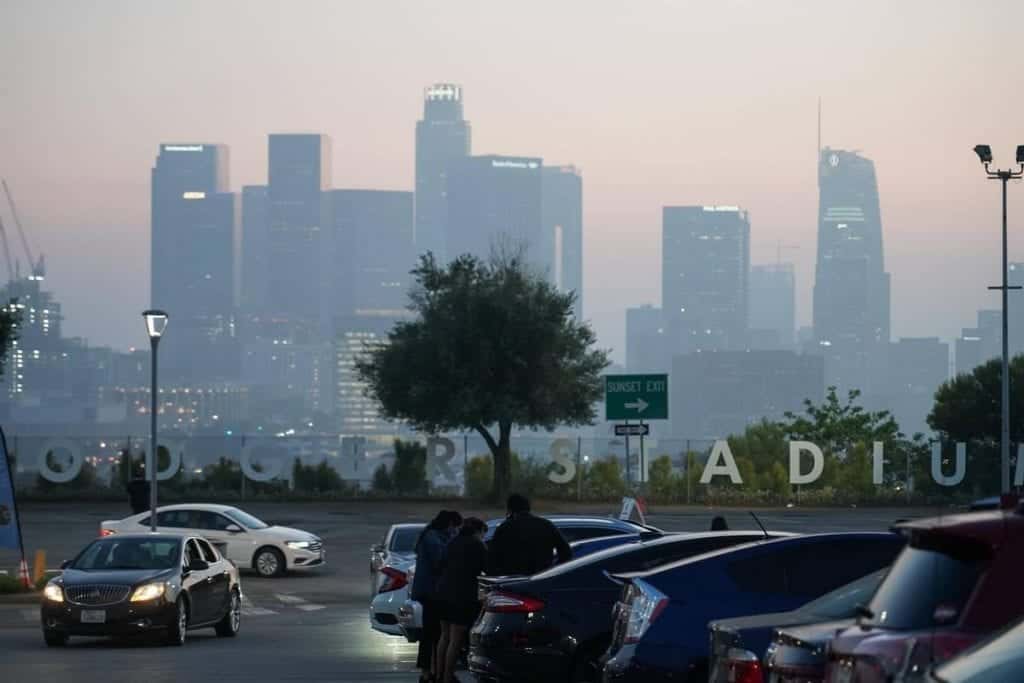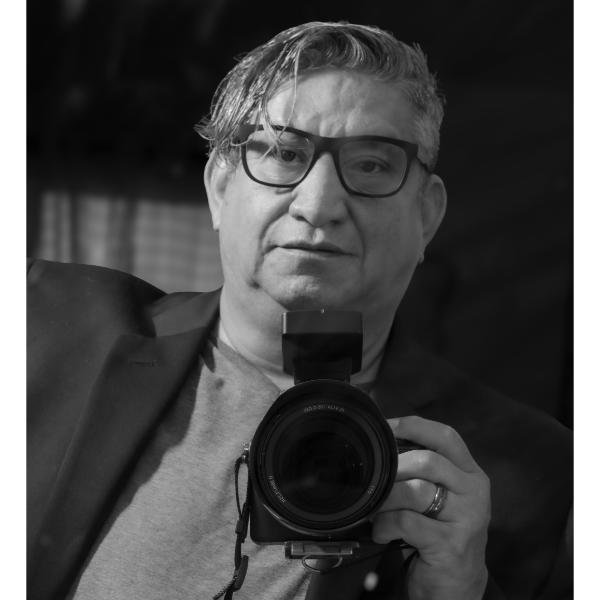The 2020 U.S. elections have proven to be both historical and nail biting. For the Central American Diaspora living in the United States, there is a lot at stake. While President Trump’s anti-immigrant rhetoric has done its fair share of prompting immigrants and immigrant advocates to rally and vote against him, “Latinos for Trump” helped sway Florida and Texas.
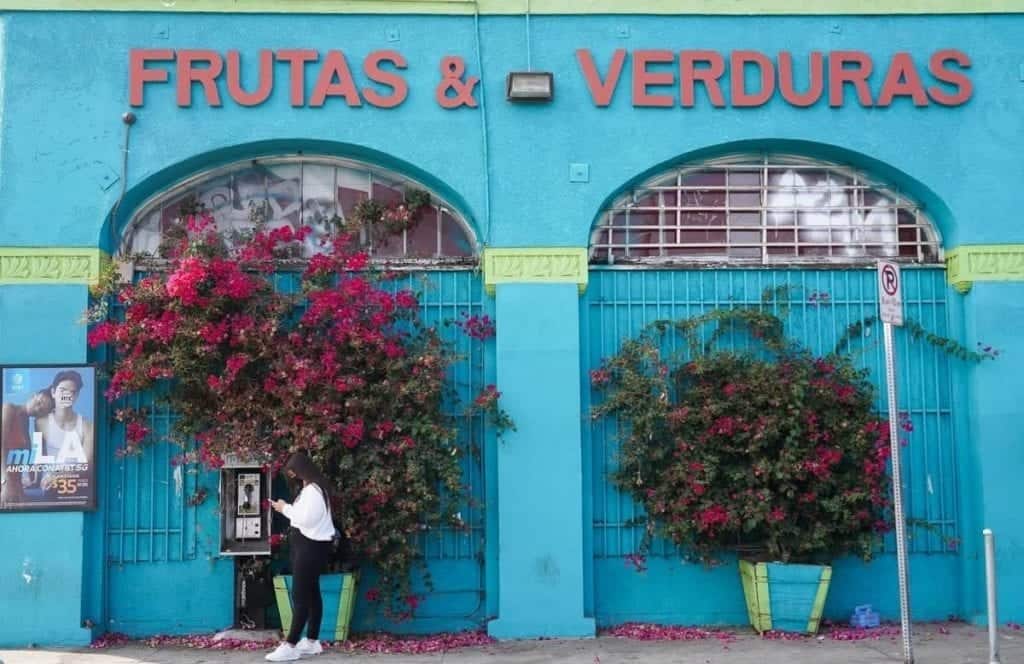
- 20-year-old Guatemalan-American Karla García walks to the voting poll near the intersection of Washington Boulevard and Magnolia Avenue in Los Angeles.
Decades ago, as Central America sparked revolutions and suffered political turmoil and human rights under U.S.-backed military governments, Central Americans started heading north, with many arriving to the Los Angeles area in the 1980’s. Now, many of those immigrants are citizens, have educated children who are voting, and are re-shaping the political landscape in which they live.
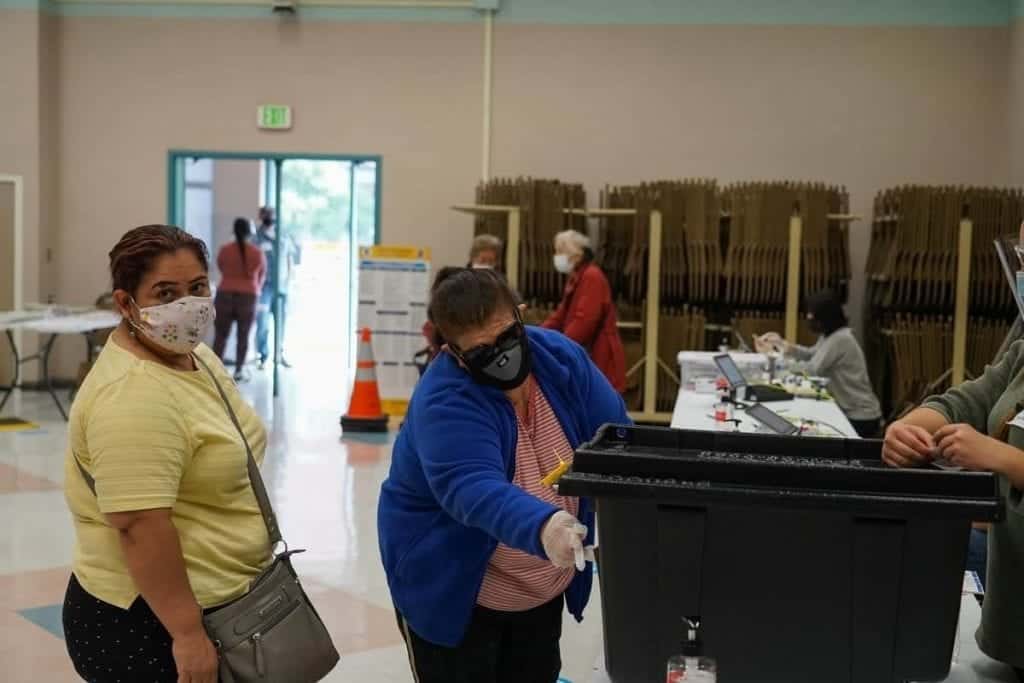
- 75-year-old Teresa Lopez (in blue sweater), originally from Sonsonate, El Salvador, casts her vote with the help of her caregiver.
“I believe we can have a change, something better, better for our future,” 20-year-old Guatemalan-American Karla García said after voting on Tuesday. “I don’t agree with his [Trump’s] decisions, how many people have died [of Covid]. If we all support each other, we can bring that change about.”
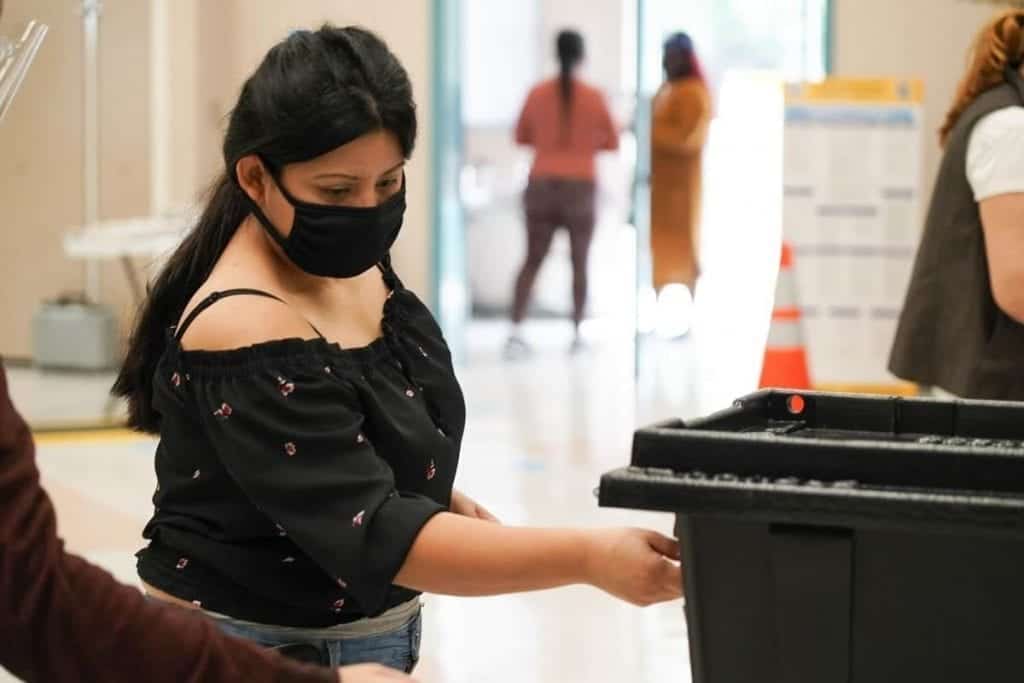
- Meladis Romero, 32, originally from El Salvador, drops off her mail in ballot in the Pico-Union area of Los Angeles.
The Cal State University student went on to say: “If Biden wins, we will all be better off here and we can better help the people in Central America. My mother says that Biden will support immigrant’s rights, Trump hasn’t done it.”
Teresa Lopez is 75, originally from Sonsonate, El Salvador, and has resided in Los Angeles since 1988. After voting in The Pico-Union area, also known as Little El Salvador, she told me, “We need to end the discrimination against Latinos, to stop looking down at the undocumented, to stop the separation of children, which is an injustice.
That’s what motivated me to vote today. There are more than 500 children who are still not reunited with their parents, imagine the agony of those children.”
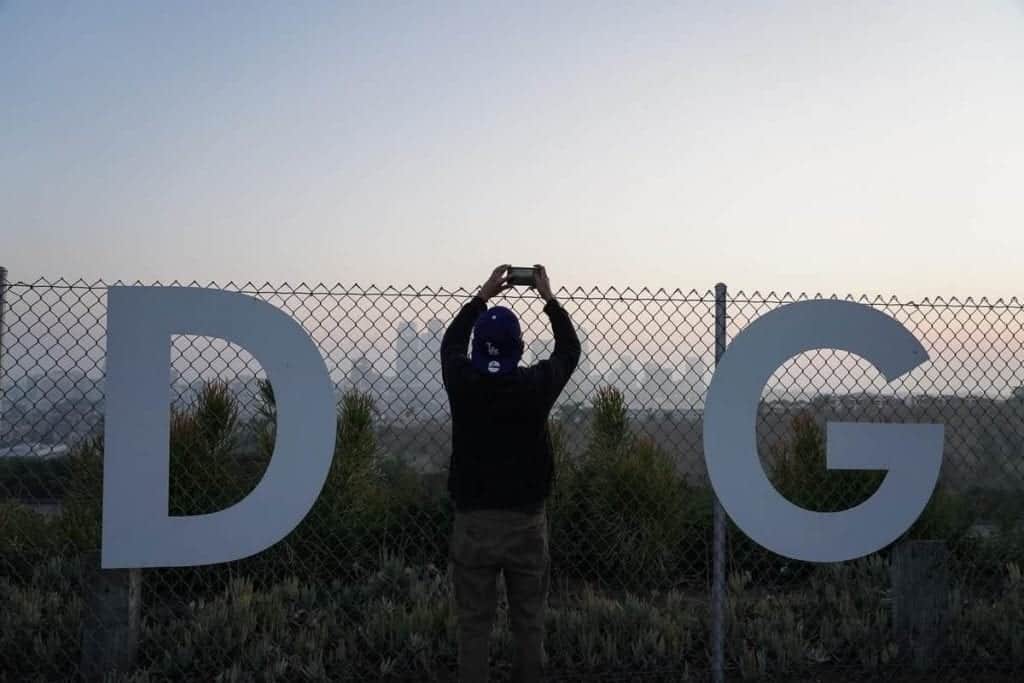
- A Dodgers’ fan snaps a picture of the LA skyline at dodgers’ Stadium after casting his ballot.
Not all the Central American Diaspora Vote Democrat
“Anyone can tell me ‘you are wrong’ on this one, but I think Trump can do a lot for Central Americans, this would be his second term, he has nothing to lose. I don’t think he would give amnesty to the undocumented, but he probably will do immigration reform,” 66-year-old Richard M, said. He declined to give his last name.
Originally from San Salvador, he has lived in Los Angeles for 39 years. When asked why he supports Trump despite the fact that Trump is against TPS and DACA, he said, “It hurts to say this, but it is a good thing to do because people with TPS and the ‘Dreamers’ take jobs away from citizens.”
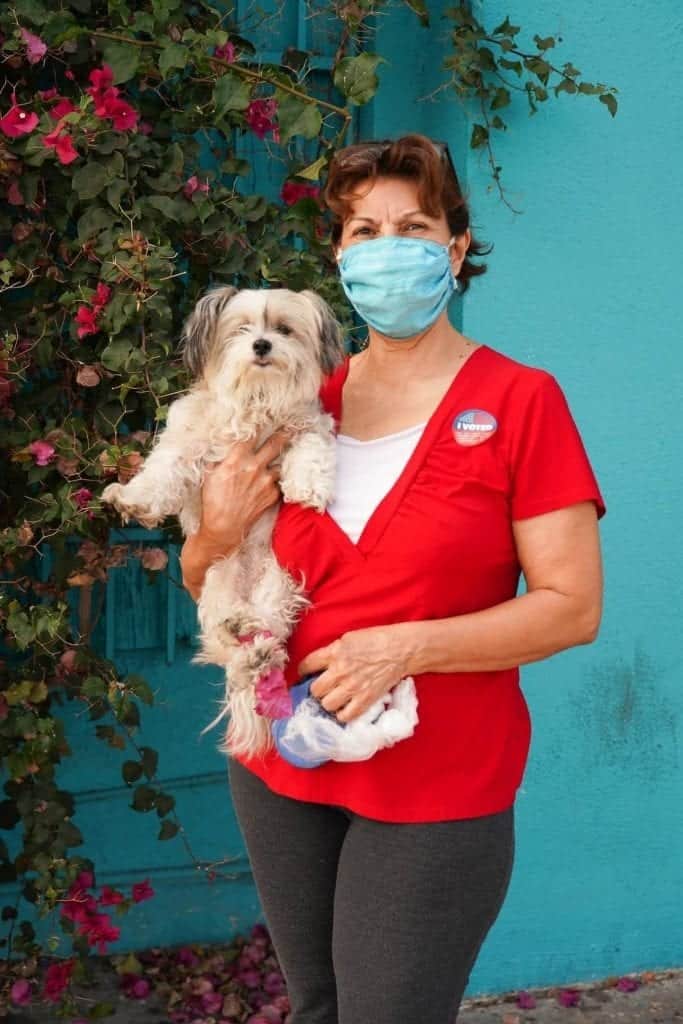
- Maribel Ramos, 56, from Nicaragua after her casting her vote.
Not only did people have choices of voting early, but also, they could choose where to vote.
Many went to vote at iconic sites, such as the Dodgers’ Stadium. In the parking lot, the Figueroa family, with roots in El Salvador, was doing their last minute homework researching the California propositions.
19-year-old Tatiana and Tiffany, twins, tried to understand the ever-confusing propositions, while their younger sister, Karen, did some research on her phone, Their mother, Mirna, proudly watched on. Mirna is not a citizen and can’t vote.
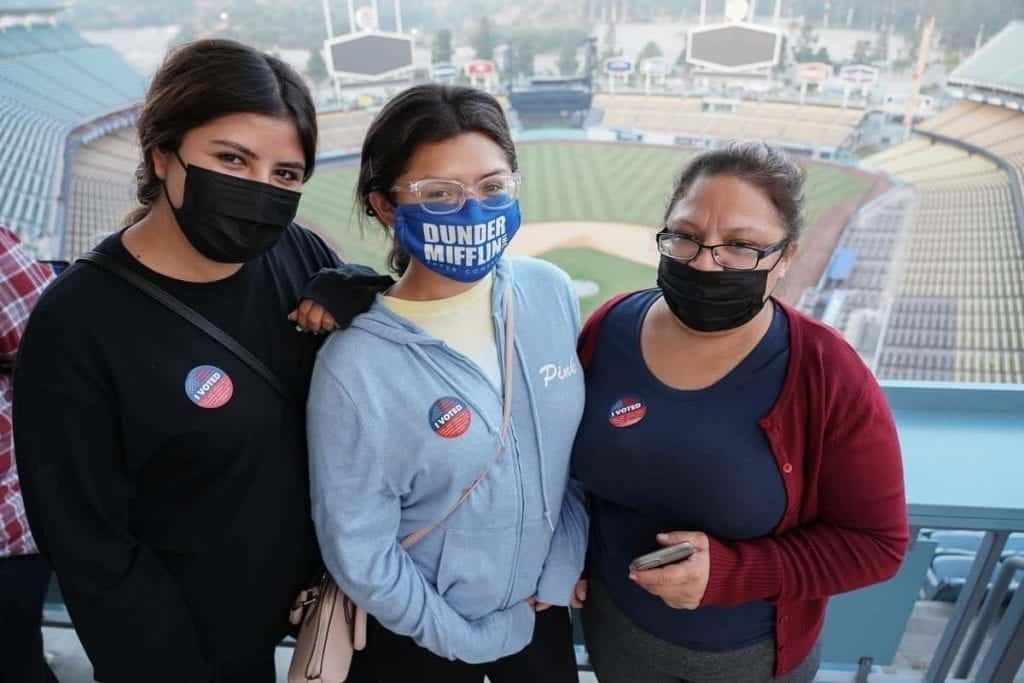
- Dodgers’ fans, (from left to right) Mariana, Giselle and Laura, pose in front of the field after casting their votes.
“Many people can’t vote yet, so basically, we vote for those that don’t have a voice,” said Tatiana. When asked how Latin America will be affected by whoever wins the presidency, Francisco said, their 22-year-old brother, weighed in: “Trump might not have policies that would help other Latin American countries. We are hopeful that Biden will be more understanding of the region.”
Maribel Ramos is 56, originally from Nicaragua, and has lived in Los Angeles for 35 years. When asked who she voted for, she pointed to her red blouse. “What color is this, what does it represent? Republicana!”
Meladis Romero, 32, originally from El Salvador, is voting for the first time. When asked how a new U.S. president will interact with the president of El Salvador, she said: “I think the president of El Salvador is a good president, and he will work well with a new president. He can have good relations with the new president so that we can have better opportunities here, and people living in El Salvador have better jobs so that they don’t have to leave the country. We already had Trump and we have seen that he has not supported Latinos, we hope Biden will do a better job and that he will treat Latinos with equality.”
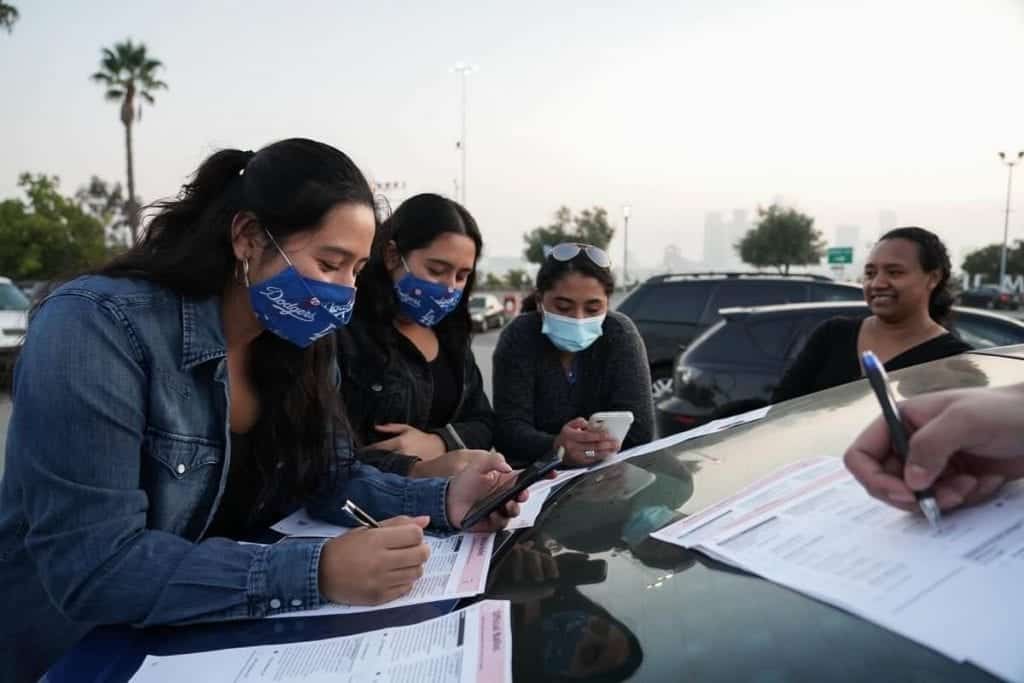
- The Figueroa family, from left to right, 19-year-old twins Tatiana and Tiffany are aided by their 15-year-old sister, Karen, in deciding on the California propositions. Karen was in charge of researching on her phone what the propositions mean as their mother, Mirna, proudly looks on. The family uses the car’s trunk as a work desk at the Dodger’s Stadium parking lot.
Francisco Lozano was born in El Salvador and emigrated to Los Angeles in 1984. He is a freelance photographer and writer based in Los Angeles.
First published in El Faro, here.
Read also
https://hispanicla.com/cuba-beyond-the-tourism-hub-a-photographers-experience-45138
L.A’s Protests, As Diversified As The City Itself; Calls for Mayor, Chief’s Resignation
